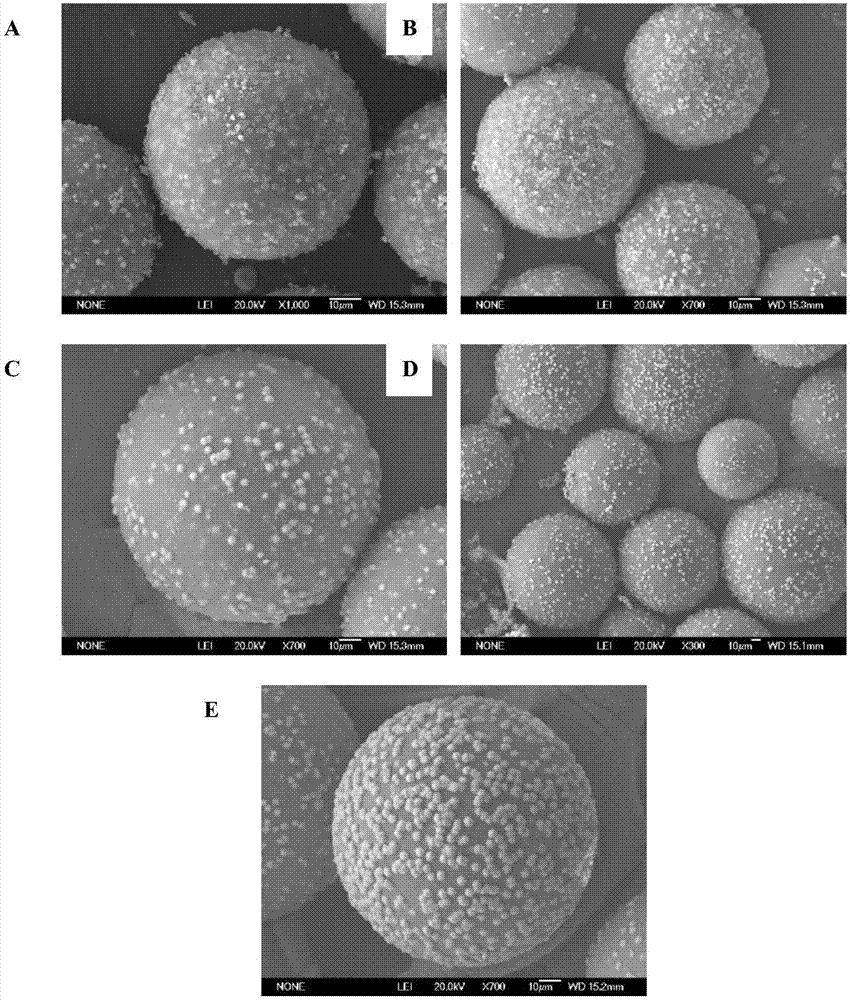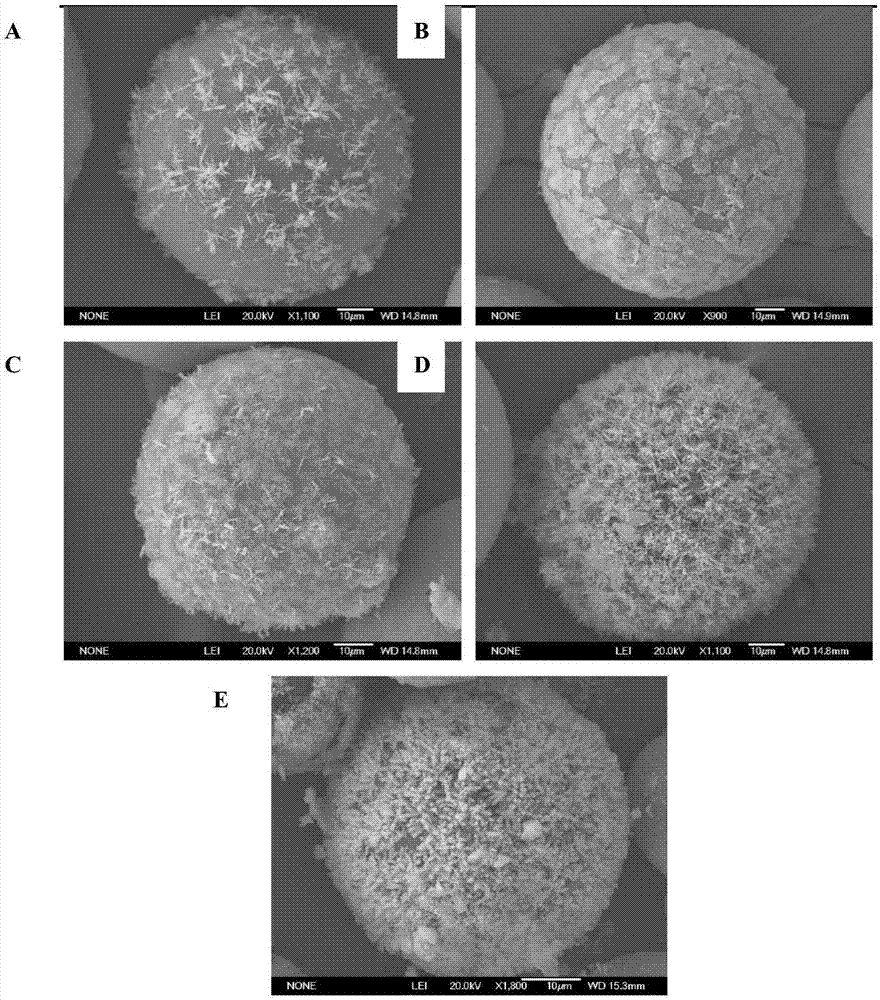Method for preparing porous resin microsphere surface growth morphology controllable TiO2
A technology of porous resin and surface growth, applied in chemical instruments and methods, chemical/physical processes, catalysts for physical/chemical processes, etc. Conductivity, obvious advantages, the effect of high specific surface area
- Summary
- Abstract
- Description
- Claims
- Application Information
AI Technical Summary
Problems solved by technology
Method used
Image
Examples
Embodiment 1
[0020] Embodiment 1: porous resin microsphere / TiO 2 Preparation of composite microspheres
[0021] Preparation mass concentration is the n-butyl titanate solution of 100g / L, and wherein solvent is the hydrochloric acid solution that concentration is 5mol / L; 3.0g porous poly (styrene-divinylbenzene) microspheres are added to 30g above-mentioned n-butyl titanate butyl ester solution, and ultrasonically dispersed. Transfer the dispersed solution to a polytetrafluoroethylene-lined stainless steel hydrothermal reaction kettle, then place the hydrothermal reaction kettle in a high-temperature oven, slowly raise the temperature to 180°C, and react for 12 hours, then naturally cool to room temperature, and wash the product with water And after centrifugation, the porous poly(styrene-divinylbenzene) microspheres / TiO 2 Composite microspheres.
Embodiment 2
[0022] Embodiment 2: porous resin microsphere / TiO 2 Preparation of composite microspheres
[0023] Preparation mass concentration is the tetraisopropyl titanate solution of 100g / L, and wherein solvent is that concentration is 5mol / L hydrochloric acid solution; 2.5g porous poly(glycidyl methacrylate-divinylbenzene) microspheres are added to 30g The above tetraisopropyl titanate solution, and ultrasonic dispersion. Transfer the dispersed solution to a polytetrafluoroethylene-lined stainless steel hydrothermal reaction kettle, then place the hydrothermal reaction kettle in a high-temperature oven, slowly raise the temperature to 200°C, and react for 6 hours, then naturally cool to room temperature, and wash the product with water And after centrifugation, the porous poly(glycidyl methacrylate-divinylbenzene) microspheres / TiO 2 Composite microspheres.
Embodiment 3
[0024] Embodiment 3: porous resin microsphere / TiO 2 Preparation of composite microspheres
[0025] Preparation mass concentration is the n-butyl titanate solution of 100g / L, and wherein solvent is that concentration is 4mol / L hydrochloric acid solution; 3.0g porous poly(glycidyl methacrylate-divinylbenzene) microspheres are added to 30g above-mentioned In n-butyl titanate solution, and ultrasonically dispersed. Transfer the dispersed solution to a polytetrafluoroethylene-lined stainless steel hydrothermal reaction kettle, then place the hydrothermal reaction kettle in a high-temperature oven, slowly raise the temperature to 220°C, react for 9 hours, cool to room temperature naturally, and wash the product with water And after centrifugation, the porous poly(glycidyl methacrylate-divinylbenzene) microspheres / TiO 2 Composite microspheres.
PUM
| Property | Measurement | Unit |
|---|---|---|
| pore size | aaaaa | aaaaa |
Abstract
Description
Claims
Application Information
 Login to View More
Login to View More - R&D
- Intellectual Property
- Life Sciences
- Materials
- Tech Scout
- Unparalleled Data Quality
- Higher Quality Content
- 60% Fewer Hallucinations
Browse by: Latest US Patents, China's latest patents, Technical Efficacy Thesaurus, Application Domain, Technology Topic, Popular Technical Reports.
© 2025 PatSnap. All rights reserved.Legal|Privacy policy|Modern Slavery Act Transparency Statement|Sitemap|About US| Contact US: help@patsnap.com


